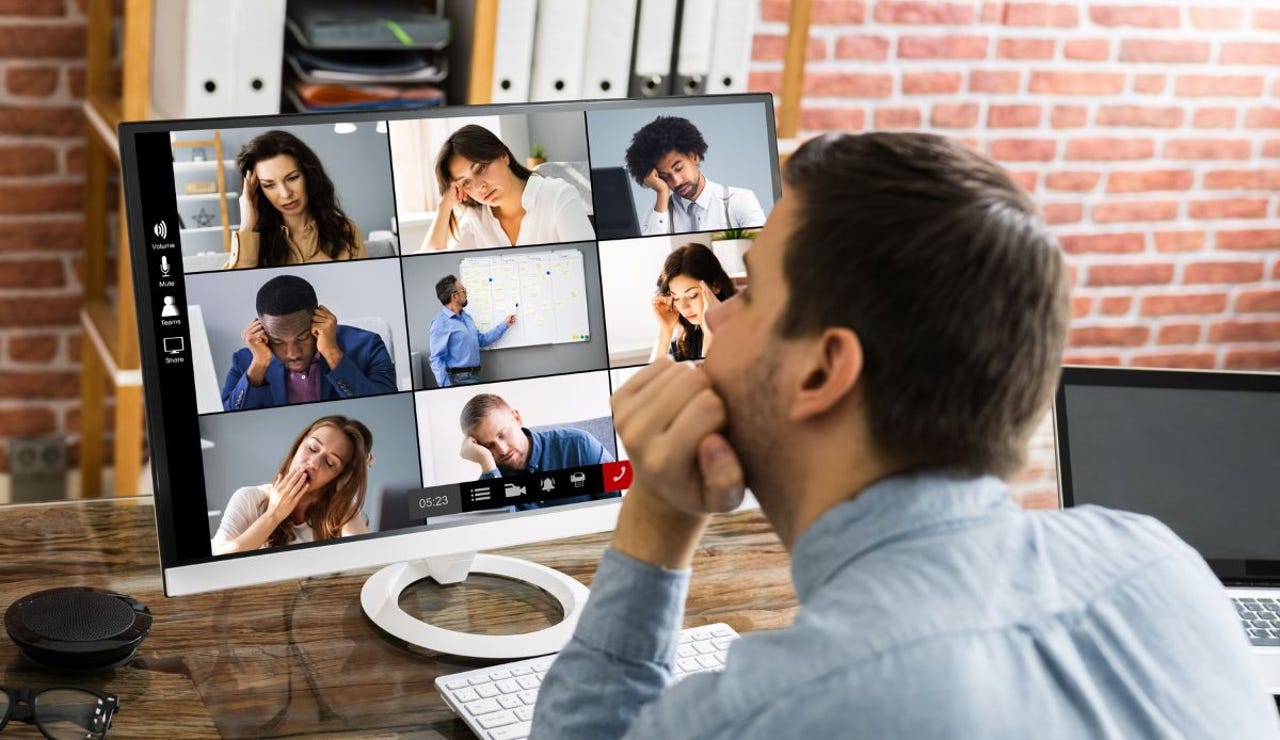































 Image: Getty Images
Image: Getty Images Companies sending their employees back to the office for five days a week are "seriously limiting their ability to attract and retain top talent" if they don't adapt their use of physical workspaces for hybrid working, says the head of Slack in the UK.
Stuart Templeton said many organizations were still struggling to figure out what role the office should play within new, hybrid work environments now that knowledge workers were spending more time working remotely.
Templeton made the comments after a survey of 1,000 UK knowledge workers by Slack found that many are going into the office and spending up to four hours on video calls.
explores the ways that the metaverse is coming to life and how it will change the nature of work -- and maybe everything else, too.
Read nowSlack said employers risked turning their offices into "productivity killers" if they couldn't figure out how to make in-person working more meaningful. "Making a two-hour commute to sit on video calls is a terrible use of the office," Templeton told .
"Creating a clear purpose for bringing people together is critical. Leaders should focus on using the office to help build deeper connections, to brainstorm ideas, and problem solve."
According to Slack's survey, most UK workers are visiting the office three times a week, with 60% of workers aligning their in-office days with colleagues so they can connect and socialize.
Also: Digital presenteeism is creating a future of work that nobody wants
But Slack said businesses were showing "an indiscriminate approach to communications and meetings" that was impacting productive work, both in the office and at home.
Its survey found that, when they are in the office, employees often find themselves sitting through long video meetings, rather than doing productive work. On average, employees say they are spending two hours each day in meetings, according to Slack. For 20% of UK workers, this figure is three to four hours.
Commenting on the findings, Templeton said a "lifting and shifting" of pre-pandemic work habits to suit new work models "simply doesn't cut it", adding that companies and their employees "need to be clear on how they can best harness their time in-person".
Templeton added: "Hybrid work is now the norm for most knowledge workers, but it's clear from the research that many firms are still grappling with how to do it effectively, particularly when it comes to meetings."
Employers and employees have differing opinions about the usefulness of the office and whether commuting to work every day is really necessary now that we have things like video conferencing and workplace messaging apps (which, undeniably, also have an impact on employee productivity).
Also: Small business tech: How to find the right tools to boost your business
It's not so much that workers and bosses disagree over whether the office is important, but rather how often they should be required to go in, and the type of work they should do while there.
More than half of respondents (53%) said they feel more productive while working from home. As such, 55% of respondents said they prioritised 'deep work' at home. Conversely, only 16% of respondents cited the office as the best place to get deep work done.
The office is viewed mostly as a place to connect and socialize with colleagues, Slack found: 65% of survey respondents said they missed deskside conversations when working from home, with the same number of workers believing they are important for creativity and innovation.
Two-thirds (66%) of respondents agreed that quick, desk-side conversations were important for problem-solving activities and the majority (79%) cite them as important for belonging.
 Tags quentes :
Negócio
Executivo
Tags quentes :
Negócio
Executivo